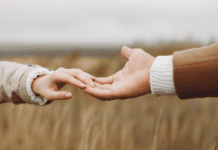 Dating in your 40s and beyond can be both exciting and challenging. At this stage in life, you are likely more comfortable in your skin and have a good idea of what you’re looking for in a partner. However, you may also have more responsibilities and less free time than you did in your younger years. You are also most likely looking for someone because you want a partner rather than need one.
Dating in your 40s and beyond can be both exciting and challenging. At this stage in life, you are likely more comfortable in your skin and have a good idea of what you’re looking for in a partner. However, you may also have more responsibilities and less free time than you did in your younger years. You are also most likely looking for someone because you want a partner rather than need one.
Here are some tips for dating in your 40s and beyond.
1. Be clear about what you’re looking for.
Before you start dating, consider what you want in a relationship. Be clear about your values, goals, and deal-breakers.
2. Try online dating.
Online dating can be a great way to meet new people, especially if you only have a little free time. Be honest about your age and what you’re looking for in a profile (more information on dating app challenges below).
3. Don’t rush.
Take your time getting to know someone before getting too invested. Remember that a relationship takes time, so don’t rush into anything.
4. Be open-minded.
Keep an open mind and be willing to try new things. Watch your expectations and judgments! You never know who you might meet and where it could lead.
5. Communicate.
Communication is vital in any relationship, especially when dating in your 40s and beyond. Be honest and open about your feelings, needs, and expectations.
6. Don’t settle.
It’s always possible to find the right person. Don’t settle for someone who doesn’t meet your standards or make you happy. It’s OK to end communication or a relationship. It’s OK to set boundaries and say no.
7. Take care of yourself.
Make sure you take care of yourself physically, mentally, and emotionally. Self-care will help you feel more confident and attractive and make you more likely to attract the right partner. Self-care is essential for yourself first, not just to attract someone. It’s about your sense of worth and confidence.
While dating apps have become a popular way to meet potential romantic partners, several challenges are associated with their use. Here are some of the challenges of using dating apps.
1. Lack of authenticity.
People often present an idealized version of themselves on dating apps, making it difficult to determine whether they are a good match. The lack of realism can lead to disappointment and frustration.
2. Safety concerns.
Meeting someone online can be risky, especially if you don’t take the necessary precautions. Some users may be deceptive about their identity, intentions, or background, putting them in a vulnerable position. Always ask for a last name, Google the person, pick a meet-up spot you are familiar with, and tell a friend.
3. Overwhelm.
Dating apps often present users with many potential matches, which can be overwhelming and time-consuming. It can be challenging to sort through all the options and find someone compatible.
4. Addiction.
Dating apps can be addictive, and some users may spend hours swiping through profiles and messaging matches. This behavior can lead to a compulsive need to seek validation or attention, harming one’s mental health and well-being.
5. Objectification.
Dating apps can encourage a culture of objectification, where people only think about their physical appearance or other superficial qualities. This culture can lead to a lack of respect and empathy for others.
6. Limited information.
Dating apps provide little information about potential matches, making it difficult to understand who they are and whether they are a good match. Because of the limited openness and sharing, miscommunication and misunderstanding can often happen.
Dating apps may sound scary based on the above challenges. Overall, dating apps can help you meet new people, but it’s essential to be aware of the potential challenges and take steps to protect yourself. The process must include the following:
- Being honest about your intentions.
- Prioritizing your safety and well-being.
- Communicating clearly with possible matches.




















